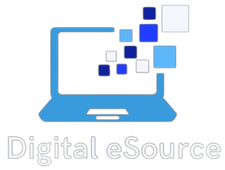SEARCH ENGINE OPTIMIZATION
SEO

SEARCH ENGINE OPTIMIZATION
SEO simply stands for Search Engine Optimization. Think about it, when you are looking for a restaurant, a plumber, a tow truck, or really just about any information, where do you go? Google. Search engine optimization is the scientific process that we use to boost your presence on search engine results in the area of your business. Google is the world's most popular search engine, with a highly complex algorithm, and SEO experts often use it as the standard for all search engines. While we’ll discuss what Google "wants," the key to remember is simple: Google prioritizes user experience. SEO isn’t about manipulating the system; it’s about delivering real value. To attract visitors, your website must be worth visiting.

PLANNING & STRATEGY
Not getting the results you need from your current SEO strategy? With us you will:
- Get Ranked High on Google
- Show Up for Search Results
- Improve Your Webpages
- Fix Your Technical SEO
- Get The ROI You Deserve
Why Do I Need SEO?
SEO is essential for any business looking to attract website visitors, as 93% of all web traffic comes from search engines. Regardless of your website type, investing in SEO—whether through time or money—is crucial. While some businesses may handle SEO in-house with a dedicated team of strategists, writers, designers, developers, and analysts, most find it challenging. That’s where we step in.
We will guide you through everything about SEO, from the fundamentals to advanced strategies.
Key SEO terms to know:
- Keyword: A phrase typed into a search engine.
- Search Results: The list of links appearing after a keyword search, also known as SERPs (Search Engine Results Pages).
- Rank: The position of a page in the SERP; the first link is #1, the next is #2, and so on.
SERVICES
NEED HELP?
Prefer speaking with a human to filling out a form? Call our office and we will connect you with a team member who can help.
1-866-525-0988
Different Types of Search Results
Search Engine Results Pages (SERPs) typically feature two types of links: paid ads and organic listings.
Paid ads appear at the top of search results, clearly marked as ads. These spots are purchased on a pay-per-click (PPC) basis. While they receive a smaller percentage of clicks, those clicks tend to convert to purchases at a higher rate. If you're ready to start a PPC campaign, Digital eSource offers exceptional PPC services to boost your business.
Organic listings make up the rest of the search results, and your SEO efforts directly impact your ranking here. Google provides different types of organic listings based on the search, aiming to deliver the best results for the user.

Let's Start with the SEO Basics
Effective SEO strategies begin with keyword research. SEO experts use tools like Google Ads, SEMrush, and others to determine the value of keywords by analyzing search volume and cost per click (CPC). Keywords with high CPC, such as “Yankees tickets,” indicate users likely to make a purchase, while informational keywords like “Yankees roster” have no CPC, as they drive little to no revenue.
Choosing the right keywords shapes your content strategy. Don't limit yourself to a single keyword per page; use a list of secondary keywords to enhance the topic's relevance. Google assesses the connection between related keywords to determine the value of your page.
Avoid always targeting the highest-value keywords. Set realistic expectations: a vintage baseball card store won’t rank first for “baseball,” and a cell phone seller won't rank for “best cell phone” against review sites. Focus on the keywords you should rank for, not just the ones you want to rank for.
On-Page Optimization
Once you have identified your target keywords, it's time to create content. Forget outdated SEO practices that encourage "keyword stuffing"—search engines are too sophisticated for that now. Instead of trying to trick Google, focus on delivering content that truly satisfies the user’s query.
Key elements of on-page content include:
- URL: The web address of the page.
- Meta title: The page title shown in the browser tab and search results.
- Meta description: A brief, 160-character description appearing under the link in search results.
- H1 heading: The main title displayed on the page.
- Body content: The main content, including text, images, buttons, and forms.
- Other headings (H2, H3, etc.): Subheadings that structure and break down content, especially on longer pages.
Creating SEO-friendly content can be challenging, but Google consistently advises using natural language that resonates with your target audience. Use your keywords strategically in the URL, meta title, meta description, H1, and body content, but avoid overuse. For secondary keywords, only include them where they make sense and continue to prioritize satisfying the user’s query.

Site Organization
Backlinks
Websites must be well-organized for both users and search engines. To achieve this, use clear navigation links at the top of pages and text links within content to guide users seamlessly. Links should be logically placed with descriptive text that indicates their destination, often containing relevant keywords to enhance SEO. A useful test is to visualize your webpage with only the links remaining—would users still understand where each link leads?
Your URL structure should also be clean and straightforward. Most sites use a hierarchical format, like:
www.yourwebsite.com/
www.yourwebsite.com/name-of-category/
www.yourwebsite.com/name-of-category/topic-of-page/
Effective site organization requires careful planning from the beginning. Define the main categories for your information or products, especially for large eCommerce sites. Use a URL structure that aligns with search intent, user experience, and your keyword strategy.
Backlinks, also known as “external links” or “off-page SEO,” are links from other websites that point to your site. These links are a powerful signal to Google about your site’s value and reputation. If other sites reference your content and direct their users to you, it shows your site’s credibility. At Digital eSource, we offer effective link-building campaigns, either as part of a comprehensive SEO package or as a standalone service. Discover how our link-building strategies can elevate your SEO.
SEO experts use tools like Majestic or Ahrefs to analyze your site's backlinks. Not all backlinks are created equal—links from authoritative, high-traffic sites significantly boost your SEO, while those from less reputable sites have little impact. Metrics like “trust flow” and “citation flow” measure the overall value of your backlink profile.
Google’s understanding of backlinks has advanced significantly. In the past, sites could manipulate rankings by placing links on “link farms,” but now Google quickly detects this tactic and can impose penalties that severely damage your rankings and are challenging to fix.
Local SEO

Local businesses need to take specific SEO steps to stand out. If you’ve ever searched for a “salon” or “shoe store,” you’ve seen local results showing business locations, phone numbers, hours, directions, and reviews. That’s the power of local SEO.
To boost your local presence, create a Google My Business profile, and ensure your business is listed consistently on aggregator sites and social media platforms. Encourage positive reviews to help your business rank above competitors. Optimize your website with localized keywords to clearly show users and search engines where you operate. Digital eSource has successfully enhanced local SEO for businesses just like yours. Learn more on our Local Map Listing page.
Technical SEO
Technical SEO ensures that both users and search engines can easily navigate your site. Key components of technical SEO include:
- Page Speed: Your web pages must load quickly. Unnecessary code and oversized images slow down load times. SEO experts and web developers collaborate to optimize page speed for the best performance.
- Mobile-Friendliness: Your website must function seamlessly across all devices—mobile, tablet, and desktop alike.
- Duplicate Content: Each page must have unique content. Duplicate titles or content confuse search engines about which page to rank. Avoid duplicate meta titles and H1 tags, as these are common but harmful issues.
- Broken Links: Broken links create a poor user experience and hurt your search rankings. A thorough technical audit should identify all 301 redirects and missing pages, ensuring that every link leads to a functional destination.
Tracking SEO Success & FAQ's
A common SEO challenge is not knowing if it's working effectively. Even experienced business owners can misinterpret changes in site traffic, revenue, leads, or customer visits. If you’re serious about SEO, you need to know exactly what metrics to track.
SEMrush is a leading SEO tool that allows you to monitor the rank of any keyword in your campaign. Before creating or updating pages, choose your target keywords and add them to your tracking list. Check your rank daily, weekly, or monthly, depending on your needs, and record the results.
You might discover that the keywords driving traffic aren’t the ones you originally targeted. Google Search Console provides insights into the impressions and clicks your pages receive for individual keywords. If a new keyword is bringing in significant traffic, make sure to add it to your tracking.
To understand the full picture, it’s important to know what percentage of your site traffic comes from search, direct sources, or referrals. Tools like Google Analytics and WebTrends can segment traffic by source, device, and more, offering valuable insights for your SEO and digital marketing strategy.
These are just the basics of tracking SEO and site traffic. If you need expert help with tracking and analytics, consider our subscription SEO services.
How long does it take to see results from SEO?

There’s no definitive timeline for SEO results—it varies by industry, keyword, and website. If your technical SEO is correctly implemented, Google will crawl a new or updated page within 48 hours. However, it can take longer for Google to assess user behavior and adjust your page's ranking accordingly.
Does page design affect SEO?

Absolutely! Anything that impacts user experience also affects SEO. Attractive designs can improve user behavior metrics, while elements like navigation links, monetization widgets, pop-ups, images, and videos contribute to the overall page structure. When redesigning a site, ensure it is mobile-friendly and optimized for fast page loading.
What’s the deal with HTTP and HTTPS?

Since 1991, HTTP has been the standard internet protocol for URLs. The "S" in HTTPS stands for "secure," ensuring a safe connection between a browser and a server. As of 2018, Google has significantly downgraded sites that do not use HTTPS.
What is black hat SEO?

Black hat SEO refers to tactics that manipulate search engine algorithms without offering genuine value, such as link farms or "doorway pages" that redirect traffic to other sites. In contrast, white hat SEO uses ethical strategies, while gray hat SEO includes debatable practices. Google and other search engines have become highly effective at identifying and penalizing black hat techniques.
What is a manual penalty? What should I do if my site was penalized?

When Google detects excessive black hat tactics, it can impose a manual penalty that significantly lowers your rankings or removes your site from search results altogether. Common triggers include using link farms or unnatural external linking. To recover, you must fix the issue and provide evidence to Google, such as removing harmful backlinks, documenting your efforts, and submitting a disavow report. It's a challenging process, but we can help you navigate it effectively if you've been hit with a manual penalty.
How often does Google change their algorithm?

Google makes daily adjustments to its algorithm, though most are minor and not easily noticeable. However, "core algorithm updates" are significant changes that are typically announced by Google. There were three such updates in both 2018 and 2019. While Google rarely discloses specific details about these updates, they generally aim to enhance the overall user experience.
What is an SEO service?

Ensure your business success—don't leave it to chance. The right SEO services are essential for securing top search engine rankings. With expert-tailored strategies, in-depth keyword research, and targeted content creation, you'll significantly boost your website traffic.
What are the 3 types of SEO?

Search engine optimization (SEO) consists of three key types: On-Page, Off-Page, and Technical SEO.
How much should I pay for the right SEO company?

Investing in the right SEO company is crucial for taking your website to the next level. Whether your goals are to increase organic visibility, boost conversions, or enhance user experience, partnering with a reliable and skilled SEO firm is essential.
What is SEO services and how does it work?

SEO is essential for transforming website visitors into customers. By optimizing your content with strategic titles, meta tags, and anchor text, alongside effective link building and social media outreach, you can significantly boost your site’s visibility in search engine rankings—outpacing competitors in SERP results.
Custom Strategy SEO Services by Digital eSource: Your Essential Step Toward Digital Success
The search engine optimization landscape is constantly evolving. To secure a high ranking on search engines, you must invest in SEO services that are specifically tailored to your business’s goals, needs, and target audience. Relying on outdated SEO strategies won't sustain a strong online presence—you need a reputable SEO partner to elevate your digital marketing efforts.
As a client-focused SEO agency, we prioritize your business’s success. Our SEO specialists work closely with you to develop customized strategies that deliver long-term results. Through a proven, efficient, and effective process, we consistently produce high-quality, measurable outcomes.
Welcome to our digital marketing agency. Get in touch with us today and explore how we can help your company expand your customer base and grow your business!
SITE NAVIGATION
© COPYRIGHT 2024 DIGITAL ESOURCE LLC, ALL RIGHTS RESERVED
